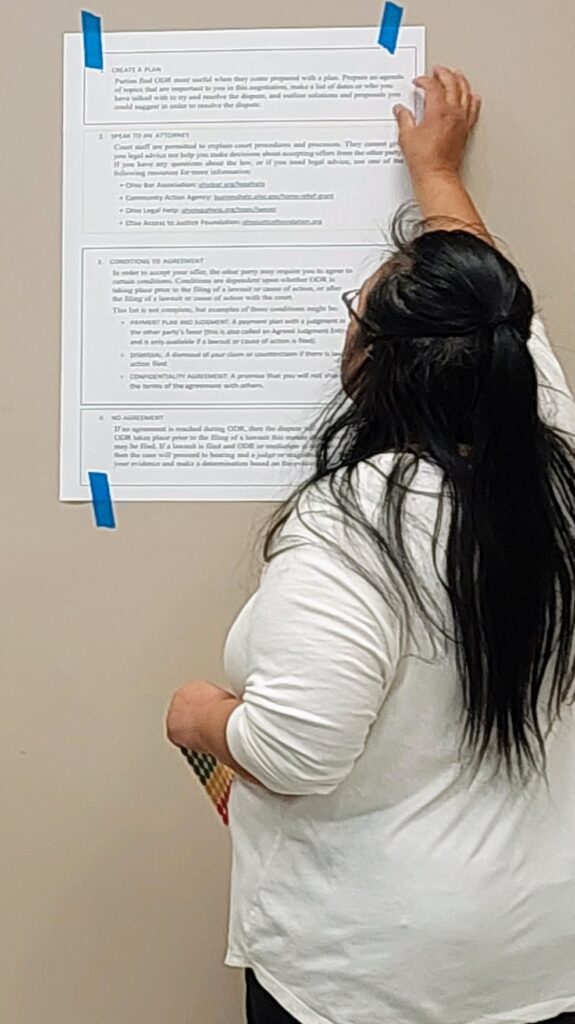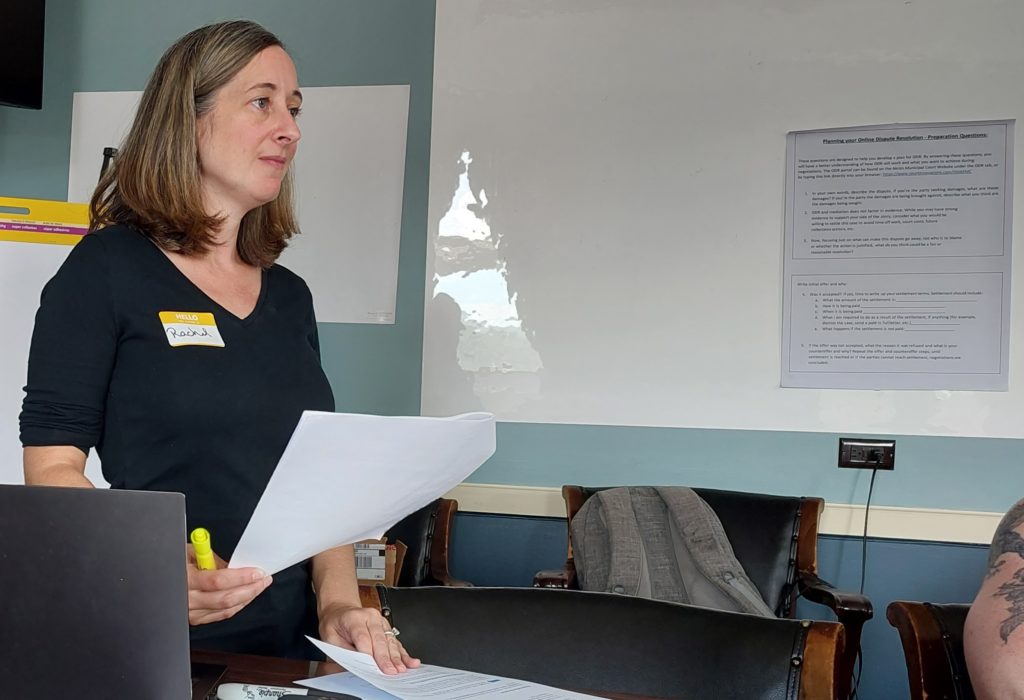RSI recently completed user testing research for the ODR Party Engagement (OPEN) Project! We are excited to share insights from our experience conducting the testing and what we learned from participants about our model court communication materials.
User Test Study
As part of the OPEN Project Phase 2, RSI developed prototype materials — a webpage, a notice document, an informational video and an interactive guide — to help courts communicate more effectively about online dispute resolution (ODR). We worked with an inclusive designer to create materials that exemplify best practices based on designer expertise, OPEN Phase 1 findings and previous research. To ensure these materials were accessible and user-friendly, we planned a series of user tests to obtain feedback from actual users whose backgrounds resemble those of self-represented litigants.
Over the past two months, the RSI research team conducted user tests across the country. We recruited a total of 15 demographically diverse participants from distinct areas: a rural town in New Hampshire; Baltimore, MD; and the Santa Fe-Española area of New Mexico. Participants were instructed to use the materials to complete relevant tasks: read about ODR, watch the informational video, prepare for ODR as a defendant, and sign up for an account. While they tested the materials, RSI researchers observed and took notes on their behavior, listened to their thought process, and asked follow-up questions. We also disseminated post-test surveys and conducted semi-structured interviews about their experience with the materials.

Read more background on the ODR Party Engagement (OPEN) Project, from concept, to focus group feedback, to creation of tools for courts, in RSI’s earlier blog posts.
Real World Feedback
Feedback from the user tests helped us to identify strengths and weaknesses in each of the materials. Users overwhelmingly praised our video for its clarity, engaging visuals, concise discussion about ODR and appropriate length; the video averaged a 4.73/5 rating for how easily it was understood.
The sessions highlighted the importance of accessible visual design. Participants missed some of the information on our webpages because they lacked sufficiently visible indicators for clickable or interactive content. Higher saturated colors, consistent blue hyperlinked text and plus signs are some of the fixes we will implement in new versions of the webpages.
Participants were excited about the prospect of ODR being available to them. The relative ease of their testing experience only amplified this excitement; participants shared frustration with previous instances trying to navigate difficult-to-use court materials. In contrast, they found our materials to be simple to follow and understand.
User testing also provides a beneficial opportunity for users to share their own creative ideas for improving the materials. During the sessions, these ideas encompassed: making the account login interface more accessible, identifying when repetitive information was useful or distracting, and enhancing the perceived trustworthiness of our notice document.
Participants were excited about the prospect of ODR being available to them. The relative ease of their testing experience only amplified this excitement; participants shared frustration with previous instances trying to navigate difficult-to-use court materials. In contrast, they found our materials to be simple to follow and understand, a sentiment shared even among those who were hesitant to use digital technologies generally. Describing the account creation pages, one participant in New Hampshire noted, “Yes, [I would feel confident helping a friend sign up for ODR using this system]. It’s really easy to use. I think my 10-year-old can do this.”
We will next return to our design partners to implement the feedback we received from user testers. RSI is grateful for the participants’ generosity and excitement for the project. We are planning to conduct one more round of user testing once the revised materials are completed to ensure any lingering issues are addressed before making the final models available for courts. RSI is also grateful to the American Arbitration Association-International Centre for Dispute Resolution (AAA-ICDR) Foundation for its funding of the OPEN Project.






